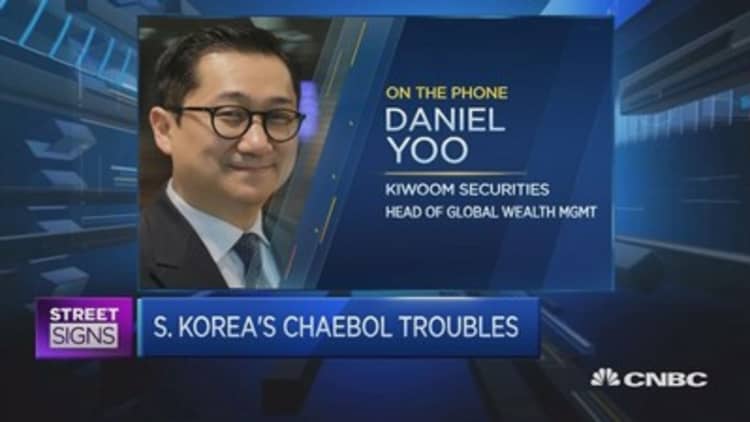
Local markets may get a boost as South Korea moves onto the next chapter of its months-long political scandal: presidential elections due by May 9.
"The Korean market is trading at an 8 percent equity risk premium, this is the highest level ever in Korean history," Daniel Dongwon Yoo, head of global wealth management at Kiwoom Securities, told CNBC on Monday.
That figure is three percentage points higher than the U.S. market, and two percentage points higher than Japan, he said.
But if the country signals its commitment to transparent politics and structural reforms, investors will grow more confident and "the level of risk premium applied to the Korean economy will slowly go down," according to Yoo.
The domestic market has always been trading at a high discount due to issues with corporate governance, Yoo noted.
Foreign investors have long bemoaned the lack of rights for minority shareholders among chaebols, or family-run companies. That issue was brought to international attention during Samsung's 2015 merger of Samsung C&T with holding company Cheil Industries. Billionaire activist Paul Singer's hedge fund Elliot Management Corporation, who had a 7 percent stake in Samsung C&T, .
"I don't know how long it will take for chaebols to restructure and reform, but nevertheless, it's going in the right direction, as we can see from Lee's prosecution," said Yoo, referring to the ongoing trial of Samsung Group heir Jay Y.Lee.

